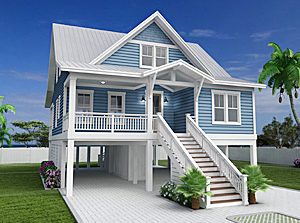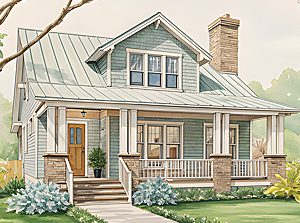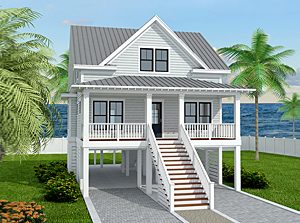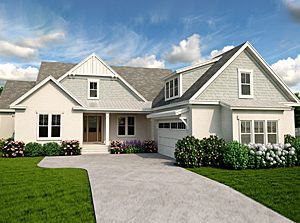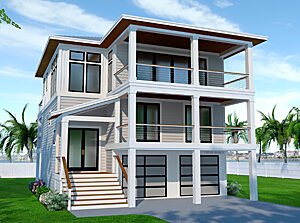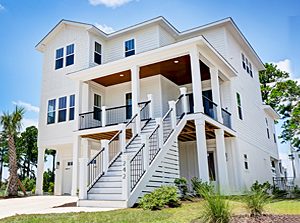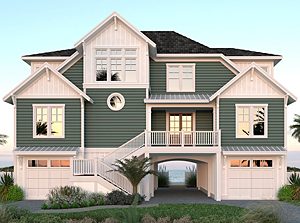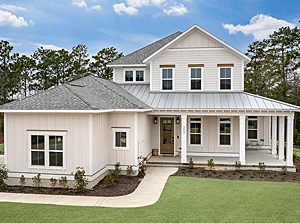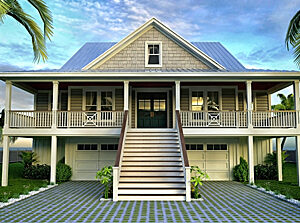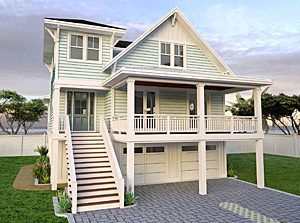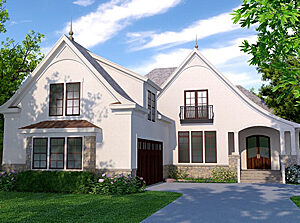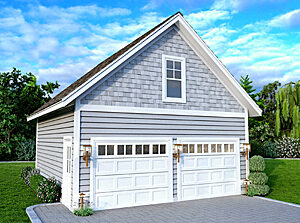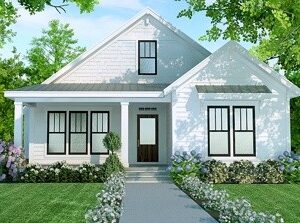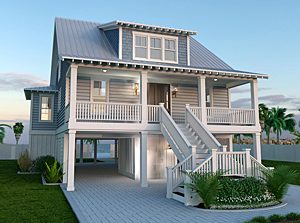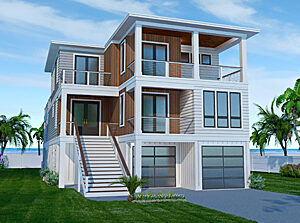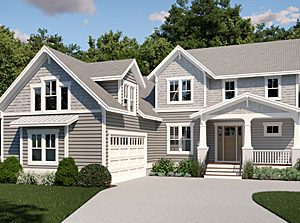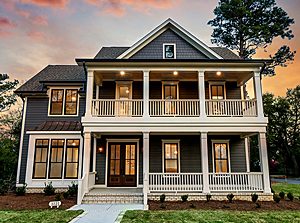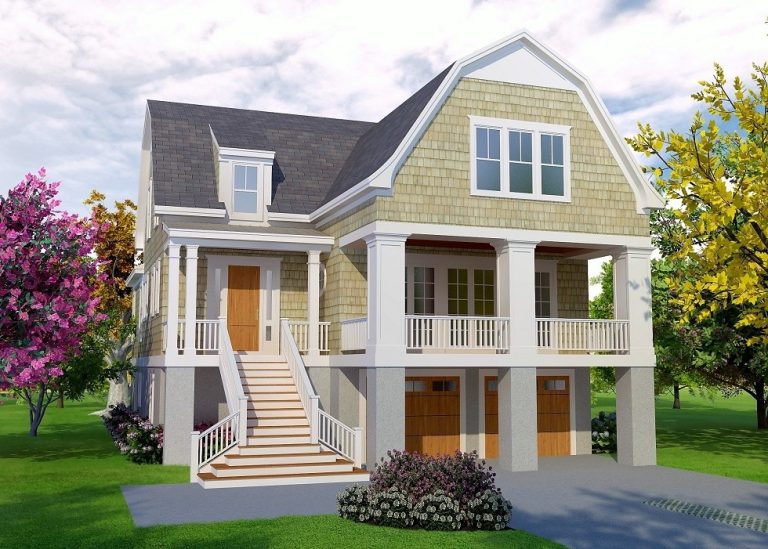Living by the ocean presents unique challenges for homeowners. Relentless salt spray, powerful coastal winds, and persistent humidity can take a severe toll on building materials. That’s why choosing the right low-maintenance exterior materials isn’t just about convenience—it’s essential for protecting your coastal investment.
Smart material selection for your beach house delivers compelling benefits:
- Significant long-term cost savings
- Potential insurance premium reductions
- Substantial increase in property value
Best Siding Materials for Coastal Properties
Fiber Cement Siding
When it comes to beach house siding, fiber cement stands in a class of its own. This innovative material combines cement’s legendary durability with the cherished aesthetic of traditional wood siding. Unlike conventional materials, fiber cement laughs in the face of coastal challenges—resisting everything from relentless salt spray to intense UV exposure. Its impressive defense against rot, moisture, termites, warping, and fading means you’ll spend more time enjoying your beach house and less time maintaining it.
Vinyl Siding
For homeowners seeking maximum value, high-quality vinyl siding delivers exceptional coastal protection without breaking the bank. Nearly matching fiber cement’s impressive durability, vinyl stands strong against harsh oceanfront conditions while requiring minimal upkeep—just occasional cleaning with basic soap and water keeps it looking fresh.
Composite Siding
Engineered from an innovative blend of recycled wood and plastic resins, composite siding represents the pinnacle of modern exterior materials. While it commands a premium price point, composite siding’s unmatched durability and authentic wood appearance make it the gold standard for discriminating coastal homeowners seeking the perfect balance of aesthetics and performance.
Pressure-Treated Cedar
For those drawn to authentic wood siding, pressure-treated cedar offers the best natural defense against coastal conditions. Its inherent resistance to insects and decay makes it the most resilient hardwood option available, though it still requires more regular maintenance than synthetic alternatives.
Protective Paint & Finishes
Coastal homes with wood siding demand specialized protection. Marine-grade paints featuring UV and mildew resistance provide crucial defense against salt, wind, and sun exposure. Adding a high-quality primer not only simplifies maintenance but significantly extends the life of your paint job.
Resilient Coastal Windows & Doors
Glass Options
- Laminated Glass: Composed of two silicone-glazed glass panels pressed together with a clear interlayer, modern laminated glass windows are sturdier and less likely to break than standard glass windows.
- Tempered Glass: Approximately four to five times stronger than traditional glass, tempered glass breaks into small round pieces rather than dangerous shards, minimizing the risk of injury in the case of wind-blown debris.
- Impact-Rated Glass: The ultimate in coastal protection, these windows combine laminated and tempered glass technologies for unmatched storm resistance while delivering superior noise reduction and energy efficiency.
Frame Options
- Vinyl Frames: Vinyl is the most common (and most affordable) material for coastal window and door frames. Practically immune to rust, rot, corrosion, and cracking, vinyl frames do very well in high-moisture coastal environments.
- Fiberglass Frames: Want something with an even longer lifespan? Fiberglass window and door frames are stronger and sturdier than vinyl. Plus, they can be designed with special markings and textures to mimic the appearance of real wood.
Durable Roofing Solutions
Metal Roofing
Metal roofing—especially aluminum—has become a popular choice for modern coastal homes because of its wind resistance, corrosion immunity, and natural energy efficiency. With occasional inspections, aluminum roofs can last 40 years or longer. Other metals like galvanized steel are also excellent options, although they require a little more maintenance to ensure maximum durability.
Slate Roofing
Similarly low maintenance, durable, and anti-corrosive, slate is made from fine-grained, compressed shale or mudstone. Slate’s high density makeup ensures unmatched protection against coastal storms, hail, and hurricane-force winds. Although it’s one of the most expensive roofing options, slate roofing can literally last centuries.
Clay Tile Roofing
Clay tile roofing strikes an elegant balance between stunning aesthetics and robust weather protection, offering mid-range pricing with moderately low maintenance requirements.
Coastal Decking & Outdoor Living Spaces
Composite Decking
Leading the revolution in outdoor living materials, composite decking delivers the aesthetic appeal of natural wood while eliminating traditional maintenance headaches. Its remarkable resistance to weathering, decay, and moisture damage makes it ideal for coastal applications.
PVC Decking
PVC plastic decking materials offer exceptional resistance to salt spray, UV radiation, and humidity. While less eco-friendly than composite options, PVC provides unmatched durability in harsh coastal environments.
Stone Patios
Natural stone patios provide timeless appeal with remarkably low maintenance requirements, needing only occasional sweeping and periodic power washing to maintain their beauty.
Non-Cellular PVC or Fiber Cement Components
For railings, fascia, columns, and trim elements, non-cellular PVC or fiber cement materials provide optimal protection against coastal conditions while minimizing maintenance requirements.
Looking For a Stunning Coastal Home Plan?
Let’s bring your vision to life! Explore our extensive collection of customizable coastal home plans designed specifically for oceanfront living.
Read More:



